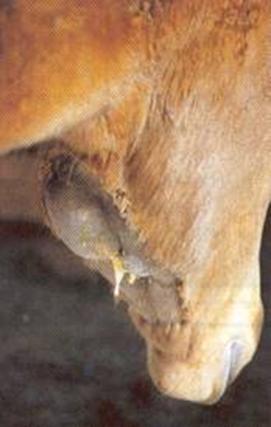My Horse Doesn’t Feel Good, What Should I Feed It?

There are a number of potential illnesses which can cause horses to go “off feed” for varying periods of time. Upper respiratory issues, such as strangles and influenza, may cause the horse to lose appetite and reduce feed intake.
There is a bit of a trade off with the nutrient requirements of the horse that is off feed due to illness. On one hand, the horse may be moving around less because it does not feel good, so it is not burning up as many calories. On the other hand, immune response and maintaining/building new tissue requires adequate Calorie intake, along with amino acids, minerals and vitamins, and adequate water intake. There is also a difference between a healthy horse that is experiences reduced feed intake, and a sick horse that experiences reduced feed intake. The body of the healthy horse conserves resources, while the sick horse has to expend resources to get well.
The following steps may be useful for the horse that is experiencing reduced feed intake due to fever or upper respiratory issues:
- Horses with a contagious condition such as strangle or influenza should be properly isolated with appropriate biosecurity measures to prevent the spread to other animals. Biosecurity is a separate topic and is very important.
- Water should be available free choice, preferably from buckets, so that consumption can be monitored and so that the buckets can be cleaned regularly.
- Palatable forage should be used. If a horse already has a respiratory issue, care should be taken to make sure the forage is dust free. It may be dampened or soaked if needed.
- A palatable well fortified feed should be used to help maintain intake and provide the nutrients required to support immune response and healing, particularly adequate amino acids, trace minerals and vitamins. Anti-oxidants such as selenium and Vitamin E may be useful.
- A feed with added fat may provide easily digestible Calories with reduced risk of metabolic disturbances.
- The goal should be to support the horse during the illness, and minimize weight loss and muscle wasting.
Regardless of the age of the horse, a senior horse feed may be a good option. Senior horse feeds are very safe, highly digestible, highly palatable and well fortified. They are designed to be used as complete feeds or with limited forage intake and can be made into a mash if needed. They work well for many recovery conditions.
If a horse is in training, care must be exercised in that even a few days of stall rest can result in some loss of bone density and soft tissue strength, so training needs to be adjusted accordingly to reduce the risk of injury. Also, lung function may not be back to 100% for several weeks following a respiratory infection.
Horses that are ill, and particularly ones that are severely emaciated, should be under the direction of a veterinarian.
